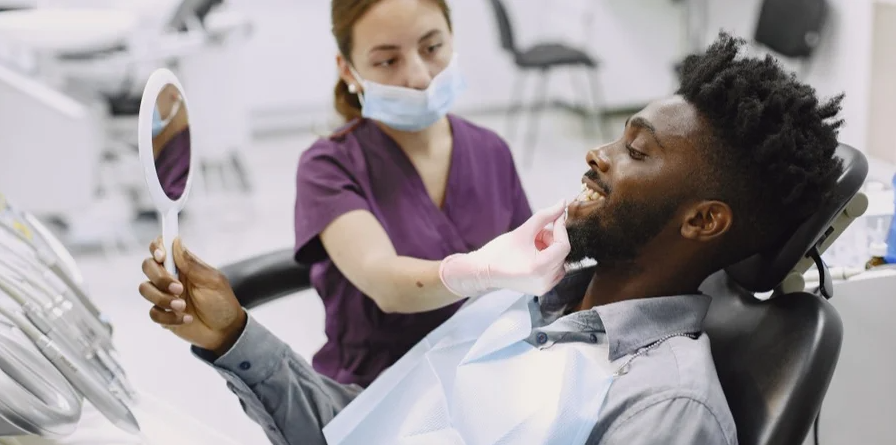Creating Comfort: Enhancing Patient Experience with Dental Aromatherapy Marketing
Understanding Modern Dental Care
In today’s evolving healthcare landscape, dental marketing strategies are shifting towards creating more pleasant and relaxing environments for patients. The integration of aromatherapy into dental practices represents a significant advancement in patient care, combining traditional dental services with holistic wellness approaches.
The Science Behind Aromatherapy in Dentistry
Research shows that essential oils can reduce anxiety during dental visits, making them an invaluable tool for creating a more comfortable patient experience. The careful selection and application of therapeutic scents can transform the atmosphere of a dental practice, helping to ease patient concerns and create positive associations with dental care.
Popular Essential Oils in Dental Settings
Several essential oils have shown particular promise in dental environments:
- Lavender – Known for its calming properties
- Chamomile – Helps reduce anxiety
- Peppermint – Creates a fresh, clean atmosphere
- Orange – Promotes positivity and reduces stress
See also: The Future of Technology in 2025: Trends, Innovations, and Impact
Implementing Aromatherapy in Dental Practices
The implementation of aromatherapy as part of dental marketing requires careful consideration and planning. Dental practices must consider various factors when incorporating essential oils into their environment:
Strategic Placement and Diffusion
The placement of aromatherapy diffusers throughout a dental practice requires strategic thinking. Reception areas, treatment rooms, and waiting areas can benefit from different scent profiles, creating a journey of relaxation for patients as they move through the practice.
Staff Training and Protocol Development
For successful implementation, staff members need proper training in aromatherapy basics. This includes understanding:
- Essential oil safety and contraindications
- Proper diffusion methods and timing
- Patient preferences and sensitivities
- Integration with existing practice protocols
Essential oils can also provide therapeutic benefits for oral health, making them a valuable addition to comprehensive dental care programmes. When properly implemented, aromatherapy can enhance the overall patient experience whilst supporting the practice’s marketing efforts.
Patient Education and Communication
The integration of aromatherapy into dental practices provides an excellent opportunity for patient education. When patients understand the benefits of aromatherapy in dental settings, they are more likely to appreciate and value this additional service. This understanding can lead to improved patient retention and positive word-of-mouth recommendations, which are crucial elements of successful marketing dental practices.
Creating a Distinctive Practice Identity
Aromatherapy can help dental practices develop a unique identity in a competitive marketplace. By incorporating specific scent profiles, practices can create memorable experiences that distinguish them from other dental providers. This sensory branding becomes part of the practice’s overall marketing strategy, helping to build recognition and patient loyalty.
Measuring Success and Gathering Feedback
To ensure the effectiveness of aromatherapy integration, practices should implement systems for measuring patient satisfaction and gathering feedback. This can include:
- Patient satisfaction surveys
- Monitoring appointment attendance rates
- Tracking patient referrals
- Recording patient comments and reviews
Clinical studies have demonstrated positive outcomes when incorporating essential oils into dental environments, supporting their use as part of a comprehensive approach to patient care.
Moving Forward with Aromatherapy Integration
As dental practices continue to evolve, the integration of aromatherapy represents a forward-thinking approach to patient care. When combined with thoughtful marketing strategies, aromatherapy can help create a more welcoming and comfortable environment for patients whilst potentially improving treatment outcomes. The key to success lies in maintaining a balance between traditional dental care and innovative comfort measures. By carefully considering patient needs and preferences, practices can create an environment that supports both physical and emotional well-being.
Enhancing the Future of Dental Care
The incorporation of aromatherapy into dental practices represents more than just a marketing trend; it signifies a shift towards more patient-centred care approaches. As practices continue to seek ways to improve patient experiences, the role of aromatherapy in dentistry is likely to grow and evolve. Through careful implementation and ongoing evaluation, dental practices can harness the benefits of aromatherapy to create more positive patient experiences. This holistic approach to dental care not only supports patient comfort but also contributes to the practice’s success in an increasingly competitive healthcare landscape.
Any surgical or invasive procedure carries risks. Before proceeding you should seek a second opinion from an appropriately qualified health practitioner.
